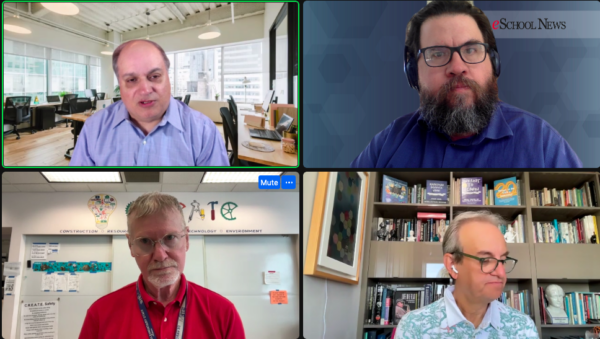What’s better than watching a lively and substantive conversation thread develop on LinkedIn as a result of your recent posting on the hottest topic in edtech today? Getting the participants to follow up with a real live conversation of their own. So it was that I was able to snag a Zoom session with Jerry Crisci, founding co-director of the Center for Innovation for the Scarsdale Public Schools in Scarsdale, NY; Mark Loundy, instructional technology specialist for the Cupertino Union School District, CA; and Gary Stager, a pioneer in 1:1 computing, online learning, and computer science for all students, to weigh in on their perspectives.
In an inspired and somewhat provocative go around, we touch on topics including AI’s influence on the education sector, concerns about cheating, the need for educational reform, and the potential for AI to enhance learning. Give it a listen and maybe chime in yourself! To read more about Gary Stger’s work regarding AI click here; for Jerry Crisci, click here; and for Mark Loundy, click here.
.Three Key Takeaways:
- AI in Education and Ethical Concerns: The panelists highlight the emergence of generative AI and its potential to transform education. However, ethical concerns are raised, particularly regarding the use of AI to detect cheating and plagiarism. The speakers argue that the focus should shift from using technology for enforcement to enhancing the quality of education itself.
- Rethinking Education: All three advocate for a fundamental reevaluation of education, emphasizing the need to revise teaching methods and assessments. They stress the importance of preparing students for a future where AI can assist with procedural tasks, such as writing and calculations. This shift involves teaching students how to be effective learners and thinkers, rather than memorizing content.
- AI as a Tool for Learning: AI is recognized as a powerful tool for expanding students’ horizons, allowing them to explore topics in depth. The conversation also suggests that AI can help students build systems and understand how AI operates, promoting critical thinking and problem-solving skills. Their emphasis is on enabling students to use AI as a resource to better understand the world.

